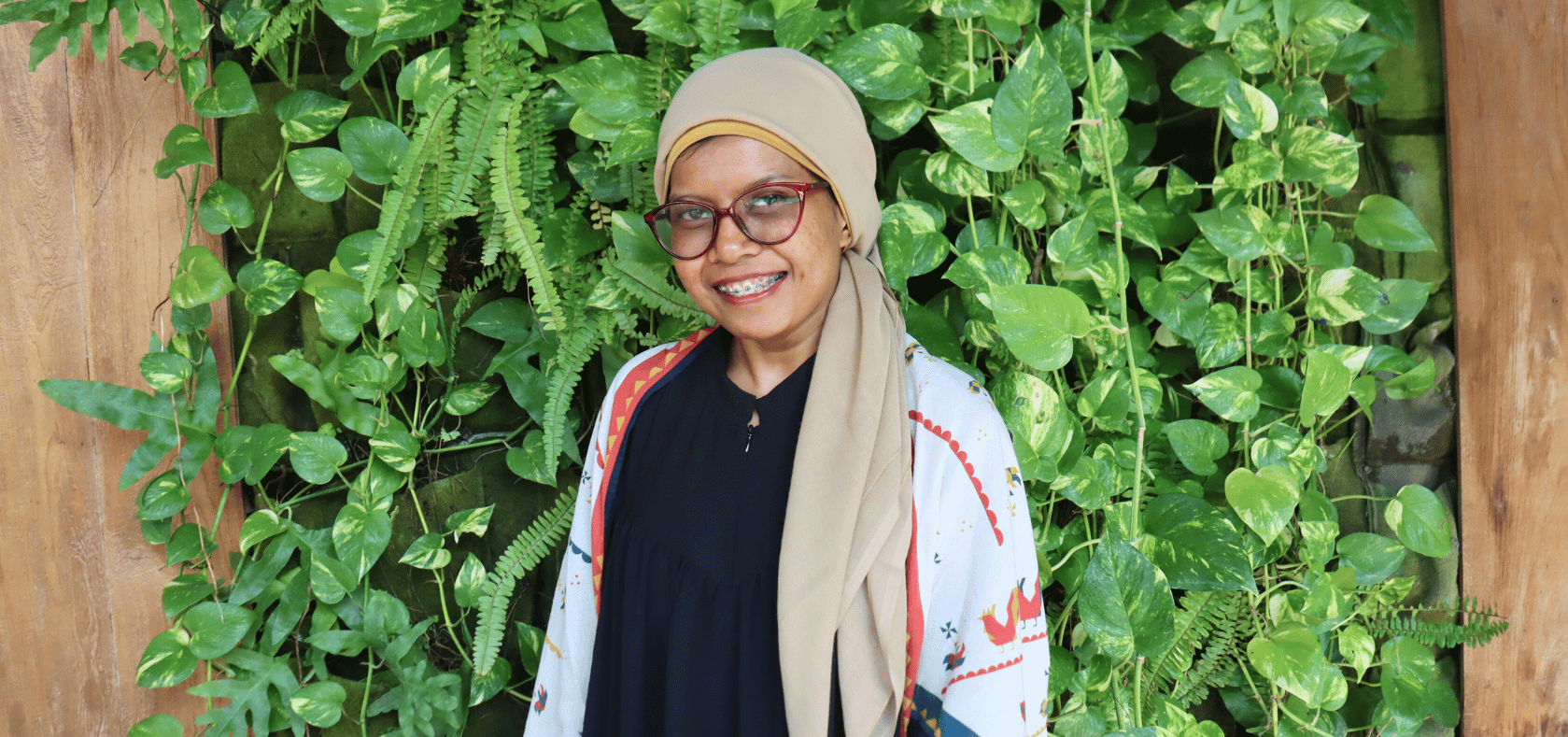Take Five: “Young women’s involvement in prevention of violent extremism is crucial”
Date:
Interviewed by Ratu Bintang Assyifa Arweys
Nur Ihsanti Amalia is co-founder and programme manager of Ruang Damai, a non-profit organization that promotes religious moderation and helps convicted terrorists reintegrate into society after their release from prison. (Ruang Damai means place of peace.) She participated in Youth Camp: Empowering Youths as Peacebuilders through Creative Industries, organized by UN Women on 14-17 August 2023 in Yogyakarta, Indonesia. The Government of the Netherlands funded the Youth Camp.

Why is it important to engage the wives of convicted terrorists in your work?
The wives and families of convicted terrorists play a crucial role in de-radicalization. If the husbands remain radicalized in prison, their de-radicalized wives can have a positive influence on them. Convicted terrorists in prison, are required to take a sworn allegiance to the Republic of Indonesia (Ikrar NKRI) as a promise that they have renounced extremist ideals. However, the radicalized wives of these convicts often threaten divorce and flight with the children if their husbands take the Ikrar NKRI. Ruang Damai creates a support group for all the wives of convicted terrorists as part of our de-radicalization effort.
Do you see young women playing a critical role in preventing and countering violent extremism?
Young women’s involvement is crucial. I have met many young women who are actively working to address religious misconceptions that can lead to violent extremism. Most of Ruang Damai’s volunteers are under 30 years old. Convicted terrorists, who are typically above 40 mentioned that seeing young people tirelessly work to support reintegration really touched their hearts. The respect and compassion shown by young people greatly contributed to their social reintegration.
You participated in the youth camp organized by UN Women. What role can entrepreneurship play in preventing violent extremism?
Many of the families of convicted terrorists are low-income. Most violent extremist groups offer financial compensation to the entire family, which often creates anxiety when families wish to break free from the network. Ruang Damai has conducted online sessions on entrepreneurship for the families of convicted terrorists. The workshop provided by UN Women helped Ruang Damai assist the families in conducting financial planning, pricing, and marketing for their businesses and has assisted in the re-branding and re-marketing of a serundeng (a sweet-savoury snack) business owned by the wife of a convicted terrorist. We are also assisting another family with a french fries' business. The husband has just recently been released from prison, but they are still facing economic hardships.
What do you hope to see in efforts to prevent violent extremism?
I want to see more synergy and collaboration between Government and civil society organizations. There is a lack of accessible and streamlined data about convicted terrorists and their families. If the Government can provide such data, civil society organizations like us can support de-radicalization efforts more holistically. Furthermore, I wish to see de-radicalization programme go beyond the prison lifespan. There needs to be a long-term engagement and mentorship for convicted terrorists and their families to reduce recidivism.
What messages would you like to share with other young women?
It is common to hear comments doubting my ability to work with convicted terrorists because I am a young woman, especially because convicted terrorists in Indonesia tend to be ultra-conservative males. However, I have proven that it is possible, and these convicted terrorists have been able to open to me earnestly. I hope we can all continue moving forward in the fight for good. Let us not listen to the noise and focus on listening to our hearts.